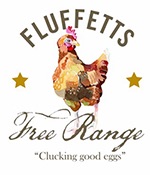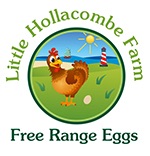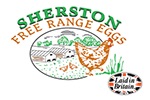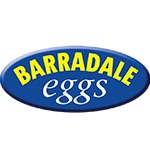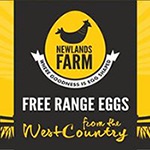It should be noticed that not all incidents receive full reporting. For instance, there have been 241 cases in wild birds up to 20th December in England, and by 11th January, 161 outbreaks have been confirmed in the Landes region of S.W. France, the centre of duck and goose rearing, and where foie gras is produced. This area was decimated in the 2017 outbreaks.
Up to the time of going to press, and from the last Hotwire, the following have been reported:-
England
| 15/12 |
Captive birds and poultry at Willington, Derbyshire. |
| 19/12 | Ducks in Attleborough, Norfolk. |
| 19/12 | Backyard poultry near Gillingham, Dorset. |
| 17/12 | H5N1 in backyard chickens in Hawes, N. Yorks. Same serotype as earlier one in Deal, Kent. All others H5N8. |
| 26/12 |
Rearing ducks Breckland, Norfolk. |
| 28/12 |
Backyard poultry Exmouth, Devon. |
| 26/12 | Non-poultry species, Attleborough, Norfolk. |
Scotland
A clear indication of the role of migrating birds in the spread of influenza was the outbreak resulting in the deaths of 39 out of 52 free range hens on the island on Sanday, in the Orkneys.
Ireland
10/1/21 HPAI (H5N8) in commercial unit in Clough, and with 2 other local premises, 80,000 birds are to be culled.
A second suspect outbreak in Lisburn, Co. Antrim, will lead to 31,000 birds being depopulated.
There have been 8 cases of HPAI in wild birds in N. Ireland.
France 4,000 ducks in S.W. France. 9/12 2nd outbreak in ducks in S.W. France. The government was set to cull a further 600,000 and maybe more.
Belgium 28/12 5,000 of 90,000 died. Remainder culled.
Denmark 1/1/21 – 9,000 birds culled in surveillance zone of previous case.
Germany 5/1/21 – 62,000 turkeys and ducks to be slaughtered.
Hungary 6/1/21 – 90,000 turkeys to be culled in N.W. of the country.
All UK and EU outbreaks have 3km Protection Zones and 10km Surveillance Zones imposed.
FSA confirm that meat and eggs pose no threat of avian influenza to humans, who can continue to consume them readily (properly prepared).
Remind your customers that the free-range birds are currently legally confined indoors, to protect their health from contact with AI virus.
But the eggs, at the moment, can still be legally classed as “Free Range”.
Many of the outbreaks in birds already confined such as broiler breeders, indicate a breakdown in biosecurity.
With the worsening weather, measures need to be reinforced.
Colony and barn birds should present less of a challenge, but free-range birds, confined, must be monitored carefully.
The normal body temperature of a bird is 41ºC – 42.2ºC, and the environmental temperature at which they perform best, is just above 20 ºC.
For every 1ºC below 20ºC, it has traditionally been estimated they require 1.5g more feed.
Ventilation becomes critical.
Birds can withstand cold, but not draughts.
Ensure popholes are wind-secure, and inlet areas, which should be as high as possible, and 5cm wide, should be angled towards the roof.
Strips of light tissues, fixed to the roof at varying distances from the inlets, will show how far the cold air is travelling before dropping.
Examination of where the birds are roosting at night in multi-tier units provides an indication of air distribution.
Condensation may happen on cold nights and the excess moisture results in raised ammonia levels.
Ammonia rises, so is easily detected.
If fans only work on interval timing at night, ammonia levels can be twice or three times that of daytime levels.
Conversely, carbon dioxide levels can be much higher at bird height than a 2m height.
Remember also, that foot dips and vehicle washes can freeze and be useless in this cold weather.
As well as covering foot dips, to prevent dilution, addition of some antifreeze will keep them operative.
Similarly, spray equipment at farm gates for disinfecting vehicles can freeze and should be protected.
Overboots should be provided for delivery drivers, to prevent disease transfer from farm to farm.
Fresh snow around houses can be useful in detecting the movements of rodents, so that appropriate action can be taken.
The number of backyard cases, coupled with the reports of abandoned birds, suggests that more stringent action should be taken against those ignoring the legal requirements to house poultry. It may be time to penalise owners in the same way that transgressors of the lockdown rules are penalised.

